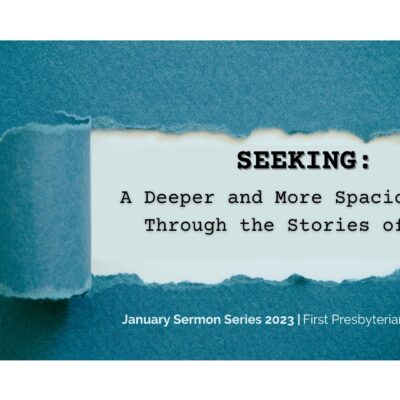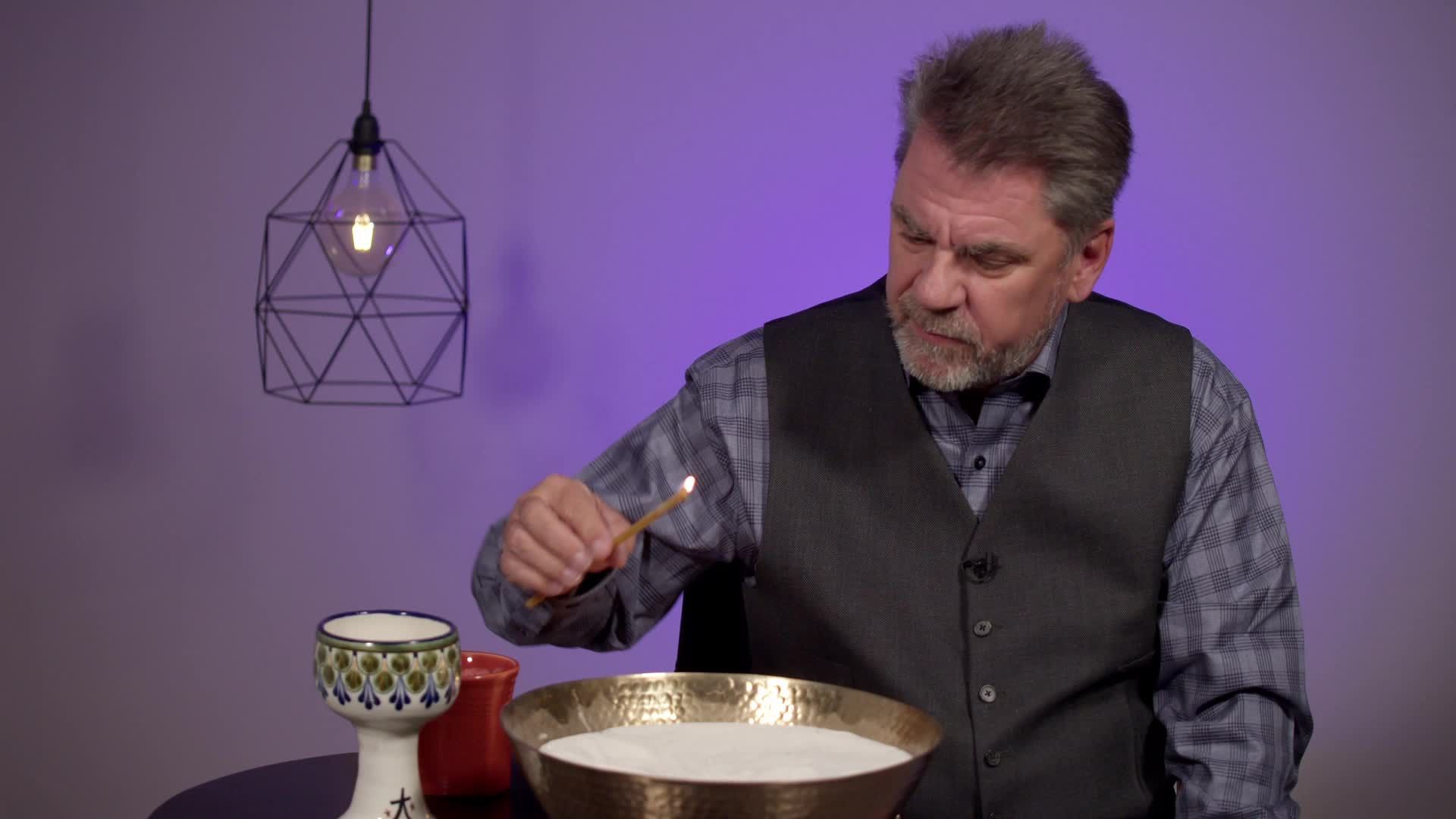Jan 22nd, A Different Lens – Parable of the Prodigal Son, with Rev. Dr. Steven Koski
A Part of the Series:
Rev. Dr. Steven Koski
Other Articles in:
Jan 22nd: A Different Lens – Parable of the Prodigal Son, with Rev. Dr. Steven Koski.
I was summoned to the principal’s office in fifth grade for bullying another student. You know, I was kind of a peoplepleaser, and rather than stand up for what I knew was wrong, stand up for the one being bullied, I went along with the crowd and participated in teasing the student. On my way to the principal’s office, my shoulders were slumped, wearing this heavy, heavy coat of guilt and shame. I saw the principal as the great enforcer who was to be feared, and it was about to cast me into the pit of eternal disapproval. I was shocked to experience a very different principle than the one I expected.
The picture I had in my mind, he said to me, I remember it so vividly, he said, Stephen, you’re so much better than this behavior. This behavior does not reflect who you really are. This is not your best self. Don’t listen to peer pressure. Listen to that voice inside that will always call you to something better.
Wow. I mean, I was shocked. I feared the principle, and I really thought I was going to be sentenced to perpetual guilt and shame.
It turned out I was being summoned to a larger and more loving life, reflecting who I really am.
If your theology if your theology sentences you to guilt and shame, and if your theology doesn’t summon you to a larger and more loving life reflective of who you really are, it’s time to change your theology. If your image of God shrinks your spirit, binds you in fear, it’s time for a new image of God.
What is your image of God? We don’t often think about this, but I’d like you to think about that, because the image or the notion of God we hold profoundly influences, whether we know it or not, influences how we see ourselves and how we relate to others in the world. When people tell me, and they tell me this a lot, they just tell me, I don’t believe in God. I always say, Tell me about the God you don’t believe in, because the chances are I don’t believe in that God either.
I profoundly believe the purpose of Jesus’s life was not to change an angry and judgmental God’s mind about us, sinful and unworthy humans. I profoundly believe the purpose of Jesus life was to change our mind about God, to change the image we hold of God, to introduce to us a God of spacious, radical, unconditional love. Knowing this would then change how we understand ourselves and how we love others.
We are at a threshold of history where we need to be healed of our image of God so that we might partner with God in healing this world, this world that is that is so lost in division and disconnectedness and despair. Our current worship series is called Seeking seeking a deeper and more spacious earth through the stories of Jesus. And we’re going to invite you to be open to challenging some of the assumptions and the images we hold of God and to hold a posture of curiosity, curiosity about the God. Jesus is inviting us to know through some of the stories that he told. You know, people would ask Jesus a question, or they would they would make an accusation, and instead of giving an answer or arguing, jesus would tell a story.
A parable biblical scholar Amy Levine says the parables of Jesus the parables of Jesus are there to challenge us, to knock us off balance, to provoke us that we might live in the world with more intentionality and generosity.
Parables are like play and catch. It wouldn’t be a whole lot of fun if I simply move toward you and handed you the ball directly. The joy of playing catch is when you’re challenged to move, to catch the ball. The word parable literally means alongside. It’s a story tossed alongside.
And if we are to catch the wisdom and the grace of the story, we have to move. So, before I tell you today’s story from Luke 15, story familiar story about a father and two sons, I want to offer just a little bit of context. Jesus had this reputation for hanging around and eating with sinners. Luke 15 actually begins now. The tax collectors and sinners were all gathering around to hear Jesus.
The pharisees and the teachers of the law muttered, this man, this man welcomes sinners, and he eats with them. Now, in the first century, sinners sinners were actually those who the religious establishment decided were unclean, unacceptable, not not welcome to the table, because they held the religious establishment held an image of an angry, demanding, judgmental God who had a lot of rules and who was really, really hard to please.
You know, I wish I could say the religious establishment in in 2023 was different, but we still like to judge and we still assume that we’re the ones who get to decide who’s acceptable to God and who’s not.
Jesus jesus was always welcoming and sharing a meal with the very people the religious establishment tried to keep away from the table. So, Luke, the theme begins before the story is told. Begins with a group of religious leaders actually criticizing the spacious welcome and hospitality of Jesus.
I’m guessing it wouldn’t be a bad thing if the church was criticized a little more for its welcome in hospitality. And when Jesus was criticized, he doesn’t argue. I could learn a little bit from this. He doesn’t argue. He tells a story.
He tosses a story alongside of them. It’s in Luke 15. Jesus said there was a man who had two sons. The younger one said to his father, father, give me my share of the estate. So he divided his property between them.
Not long after that, the younger son the younger son set off for a distant country, and there he squandered his wealth in wild living. After he had spent everything. There was a severe famine in the whole country and he began to be in need. So he went and hired himself out to a citizen of that country who sent him to his fields. A Jewish man here sent him to his fields to feed pigs.
He longed to fill his stomach with the pods that the pigs were eating, but no one gave him anything. When he came to his senses, he said, how many of my father’s hired servants have food to spare? And here I am starving to death. I will go back to my father and say to him, father, I have sinned against heaven and against you, and I am no longer worthy to be called your son. Make me like one of your hired servants.
So he got up and went to his father.
But while he was still a long way off, his father saw him and was filled with compassion for me. He ran to his son, he threw his arms around him, kissed him and said, welcome home.
The son said, Father, I have sinned against heaven and against you. I am no longer worthy to be called your son. But the father said to his servants, quick, quick, bring the best robe, put it on him, put a ring on his finger, sandals on his feet, bring the fatted calf. Let’s have a feast and celebrate, for the son of mine was dead and is alive again. He was lost and is found.
So they began to celebrate. Meanwhile, the older brother the older brother was in the field. When he came near the house, he heard music and dancing. He called one of the servants and asked, what’s going on? Your brother has come home.
The servant replied, and your father has killed a fatted calf because he has him back safe and sound. The older brother became angry, refused to go in. His father went out and pleaded with him, but he answered his father, look, all these years I’ve been slaving for you and never disobeyed your orders. Yet you never gave me even a young goat so I could celebrate with my friends. But when this son of yours, who has squandered your property with prostitutes comes home, you kill the fatted calf for him.
My son, the father said, my son, you are always with me and everything I have is yours. We had to celebrate and be glad because this brother of yours was dead and is alive. He was lost and is found.
Okay, so there’s a father with two sons. The younger son says, give me my share of the estate now. Now. In the patriarchal first century, where respect for elders, especially the father, was was everything, this son could not have said anything more offensive to those who were listening to Jesus. The story from the very beginning would have knocked those listening off balance.
And the fact that the father granted the son’s request would have shocked them.
Imagine a father imagine a father who makes the heartbreaking decision to give his younger son his share of the estate early, knowing, knowing the pain of the road ahead, but understanding he has to let go, let his son travel his own road, make his own mistake, suffer his own wounds.
Have you ever been the father in this story? Have you ever been treated by anyone the way this father loved unconditionally his son? The unconditional love of the father isn’t naive, soft or sentimental. It’s heartbreaking. The younger son wandered away, squandered it all and eventually realizes that even his father’s servants have it better than he does.
So he decides to return home. You know, I can imagine his younger son I can imagine him rehearsing his apology along the way, hoping to at least at least be treated as one of his father’s servants. Notice he has no expectations of restoration. If I could just be one of the servants. And the father sees him in the distance, because from sunrise to sunset, he has never stopped waiting, never stopped looking, never stopped hoping for the day when his son would return home and putting all dignity aside, and then, like a fool hiking up his robe, his father just races down the road to greet his son.
And before his son could even open his mouth to apologize to the apology he had been rehearsing, asking for forgiveness, the father throws his arms around him and says, welcome home.
The father doesn’t say, like I probably say, I told you so. Prove to me you’re sorry. Tell me why I should forgive you. Assure me that you’ve changed and that you’re worthy of my forgiveness, that you’ve learned your lessons and you’ll never leave again.
No, there is nothing in the father’s response that leads to guilt or shame.
The son actually tries to tell his father that he’s not worthy. I am not worthy to be your son. But the father isn’t even listening, calling for the best robe, the rings, sandals, all signs of the son’s worth and belonging, saying, let’s celebrate. My son, who is lost, is now found.
Now the older brother is less than pleased and says, I love this. I can hear the resentment. That son of yours not my brother. But with disgust, that son of yours has squandered all your money and you give him a feast. He’s not deserving of your love.
And here I am.
Oh, gosh, I can so relate to this. And here I am, serving you for all of these years without giving you one moment of grief. Where’s my party?
Here’s what we so often miss in this familiar story and is the key to living a deeper faith, living a more spacious and radical love. The key to moving from what I call a transactional faith to a transformational faith, moving from an image of God whose love is conditional to a God whose love is spacious, radical, unconditional. Here’s the key. Both sons in the story feel estranged and separated from their father. The younger son feels separated because of his own choices.
Ironically, the older son feels separated from his father because of his good deeds. The younger son leaves home, and he assumes his selfish behavior has separated him and made him unworthy of his father’s love.
The older son stays home and assumes his good deeds. His good deeds should earn his father’s favor, but he never experiences the joy of his father’s love.
Both sons, like so many of us, both sons hold an image of their father as judging, keeping score, keeping track, and you either have points deducted or you have points added.
Both sons assume the father’s love is determined and dependent by their actions, good or bad.
And Jesus, jesus turns this idea completely upside down. The father runs to greet his younger son, and before he even opens his mouth to apologize, embraces and kisses him, essentially saying to him, welcome home, but know that in my heart you never left. You, you are always, have always been, will always be home in my love. You can never be separated from my love.
The younger son simply hoped to be treated like a servant. He didn’t think restoration was even possible.
And the father puts the robe on him in the ring, saying, you are my beloved child. You’ve always been my beloved child. You will always be my beloved child. Nothing can or will ever change that.
Dante Stewart wrote the people. He wrote, people aren’t leaving the Church in Christianity because they don’t love Jesus.
People are leaving the Church these days because the Church and Christianity fails to look like Jesus. It’s not so much that they have a broken faith as much as their faith is broken by others. And an institution that loves power, safety, rules more than loving people.
Imagine imagine if our first and foremost priority before anything else, before talking about what we believe or who’s right, who’s wrong, or the proper way to serve communion. Imagine if our first priority was to live the spacious and radical love of Jesus in such a way that everyone, and I mean everyone, especially those who feel lost, everyone felt welcome and found in the love that has been theirs all along.
Now to the older son, who said to his father, you never gave me a party.
The father says, you are always with me, and I am always with you. Everything I have is yours. And by the way, if you’re ever interested in centering prayer, that’s probably the definition of centering prayer right there is understanding that sentence. That just may be my favorite verse in the entire Bible, the one verse that changes absolutely everything. You are always with me.
I am always with you. Everything I have is yours.
At the heart of this story is the unbelievable good news that both sons already belong in God’s love. What they are both desperately searching for is already theirs.
A transactional. Earth holding the image of a God of conditional love says if you just do this, then God will love you, accept you, save you.
So much of our love for one another is transactional. There are rules to follow, expectations to fulfill, criteria to be met in order to be acceptable.
Imagine if we didn’t stop to judge or ask if someone was worthy or deserving of our love. Imagine if we knock down all those barriers that keep people away from the hospitality of God’s, welcome the barriers that keep people from knowing themselves as God’s beloved.
Imagine if we just loved, loved with the spacious and radical love of Jesus, the kind of love that might lead people to complain who we invite to our tables.
If we love like that, we might have just found a theology worth keeping.
I really believe we are at a threshold where we need to be healed of our image of God so that we might partner with God in healing this world, this divided, disconnected world. We need a theology and an image of God that doesn’t shrink us, bind us in fear, make us feel guilty and ashamed.
We need a theology, an image of God that summons us to a more generous and loving life, more reflective of who we really are as God’s beloved.
When we know ourselves already to be at home in God’s love, we can then become the welcome mat of healing and grace so many in this world need and are longing for.
May it be so.



